Learn: How Does Blogging Generate Additional Business Income?

As a content marketer, I may be a little biased when I tell you this, but I believe virtually every business should have a blog. Blogs can help a business bring in additional income in a variety of direct and indirect ways. Here's how.
Blogging Increases Website Traffic
If your website is a storefront, think about what kind of people are finding it online. Let's say you sell shoes. Someone looking to purchase shoes might go to Google and search for the particular kind of shoes they want to find. Tennis shoes, dress shoes, winter boots, whatever. They know what they want, and they find websites that offer those shoes to them. They find websites like DSW, Amazon, REI, and Timberland. They also find product listings Google has added to Google Shopping, so they can buy products directly. They'll find your site, assuming your site ranks for the kind of shoes you're selling.
What about other kinds of queries? What if someone wants to know what the benefits are of wearing tennis shoes over running shoes, or what features they should look for in winter boots, or what the best brand is for long-lived dress shoes?
If someone has a question, is searching for information, they'll ask Google. Google will find content that delivers an answer. Those answers? 99% of the time, they're blog posts. Some sites might offer an FAQ that answers the questions, but it only answers them in short form. Long-form posts work better for answering those kinds of questions because they can go deep into the topics and explain them from all angles.
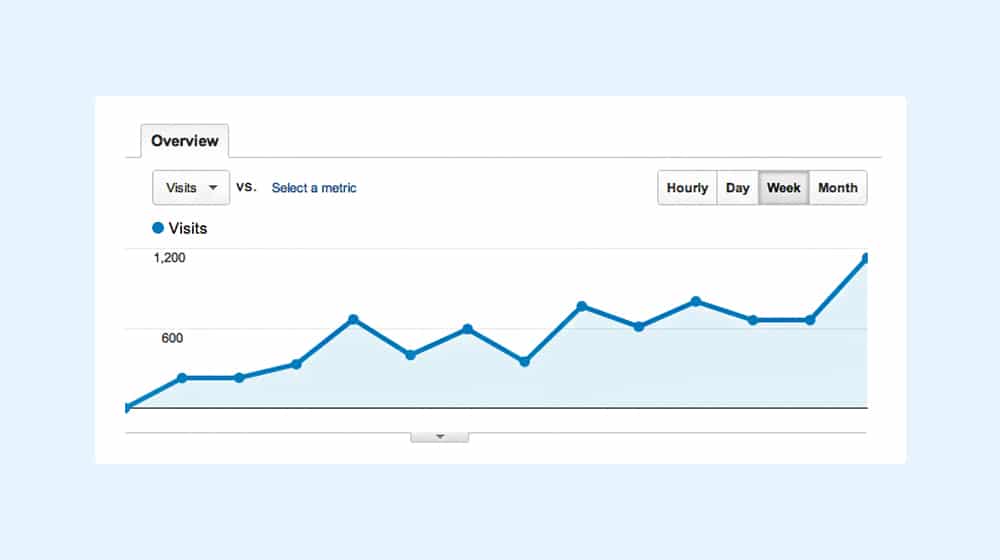
By writing a blog, you can consider the kinds of questions your audience is asking, and provide them with the answers they're searching for. When people ask those questions online, they'll find your blog, and they'll visit. From there, you have the opportunity to convince those users that you're a trustworthy seller of the relevant kind of shoes and can convert them into paying customers. It might not happen immediately, but it happens nonetheless.
Blogging Encourages New Customers
If you think about a typical sales funnel, you have a process divided into a few phases. You get people who have never heard of you to hear of you, which is building awareness. You get people who are aware of you to trust you, which is building authority. You get people who trust you to buy from you, which is building conversions. You get people who buy from you to return, which is building loyalty.
All of this can be done with a blog.
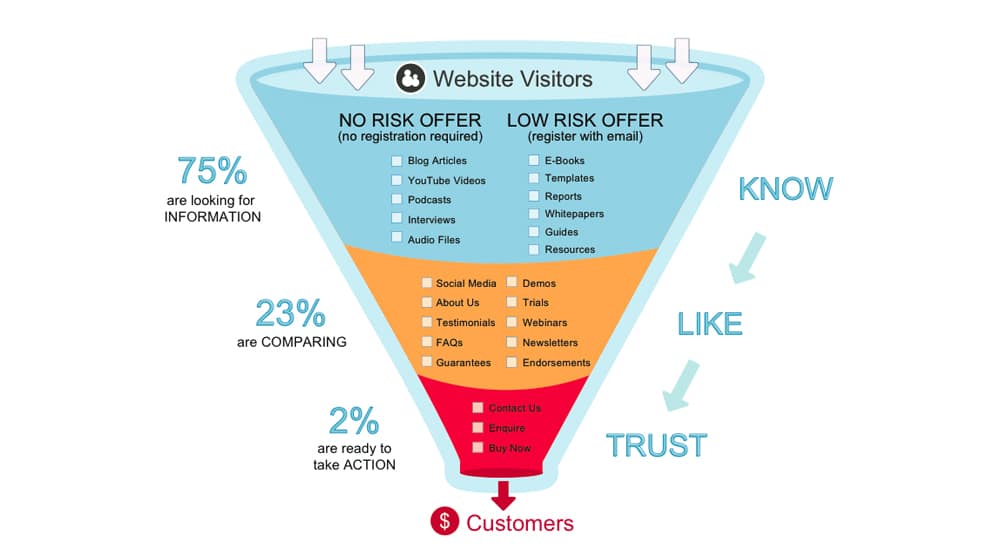
1. Awareness is built when people find you for the first time. How does that typically happen? Well, they see your name mentioned somewhere. It could be your blog - when they ask Google a question and you give them the answer. It could be social media, where you shared a post and one of their friends re-shared it. It could be from a friend simply organically mentioning you. Regardless of how it happens, your blog allows people to hear of you when they wouldn't have heard of you before.
2. Trust happens with accurate information. If you write a guide about what to look for in a good winter boot, people find and read that guide. They trust that you're giving them valuable information, because why would you put misinformation online? Sure, you have an incentive, and you might be biased towards one particular brand because it's what you sell, but savvy customers can check multiple sources and verify this information. As long as you're accurate with the broad strokes and citing your sources, people will trust you to know what you're talking about. That trust extends to your brand and products as well; you know what makes a good winter boot, so you're probably selling the good ones, not the bad ones.
3. Conversions, of course, come from the calls to action on your blog. You've built trust and an audience, and that audience sees when you mention the products you sell. If they're sufficiently interested – and some will be – they'll click through and explore your store. They make a purchase, and you get the revenue from that purchase, thereby increasing your business income via your blog.
Blogging Demonstrates Your Capabilities
Many kinds of businesses can use their blog as a kind of online portfolio. A personal trainer can write blog posts about routines they recommend, diets they like, and transformations they've helped their trainees achieve. Landscapers can talk about different kinds of plants that grow in their area, how to handle pests that attack them, and what kinds of landscaping projects their customers like to do. Web designers can talk about modern best practices, features they like to use, and websites they've designed.
A portfolio is an important selling point for pretty much any business. It's not enough to simply exist as a business; you need to be proactively convincing people that you have the skills and experience necessary to do what you say you do. A portfolio does this. An architect can have a set of designs and finished products they can display. You can have a blog full of articles written about what you do and what you offer.
This has many secondary benefits as well. For example, blogging acts as a heartbeat for a website. If a blog hasn't been updated in 3 years, what's the likelihood that the company is still in business? How confident do you feel that they'll respond to your message on time?
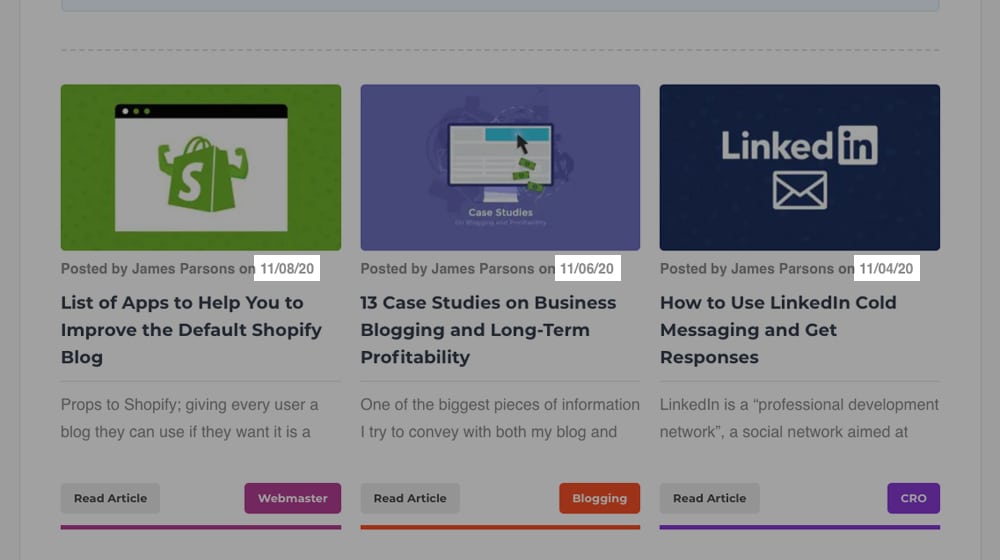
Now, take another business blog that publishes a few new articles per week. How confident are you that they'll respond quickly, and that they are still in business? As a customer, which are you more likely to purchase from?
Do you see my point?
Blogging Builds Long-Term Value
Blogging is a long-term strategy. I constantly talk about how long it can take for a blog to start working. Unless you have a ton of resources and name recognition already, starting a blog doesn't have an immediate impact on your business.
The thing is, blogging compounds. Week over week, month over month, year over year, your results stack up in a big way.
I like to talk about it as a bit of a numbers game. Every single blog post you write is an opportunity. It's a chance to rank in Google's search for a keyword or topic. It's a chance for people who have never heard of you to find out about your brand. It's a chance for people who have heard of you to experience what you have to offer. It's a chance for people who are familiar with you to finally pull the trigger on a purchase they've been watching.
Blog posts don't just disappear. Sure, some of them don't give you much value after a year if they're written about topics that have no longevity. Others, though, are relevant year-round for year after year. A buyer's guide for a product can pull in new visitors for years after you've written it, and it can stay relevant indefinitely as long as you keep it up to date.
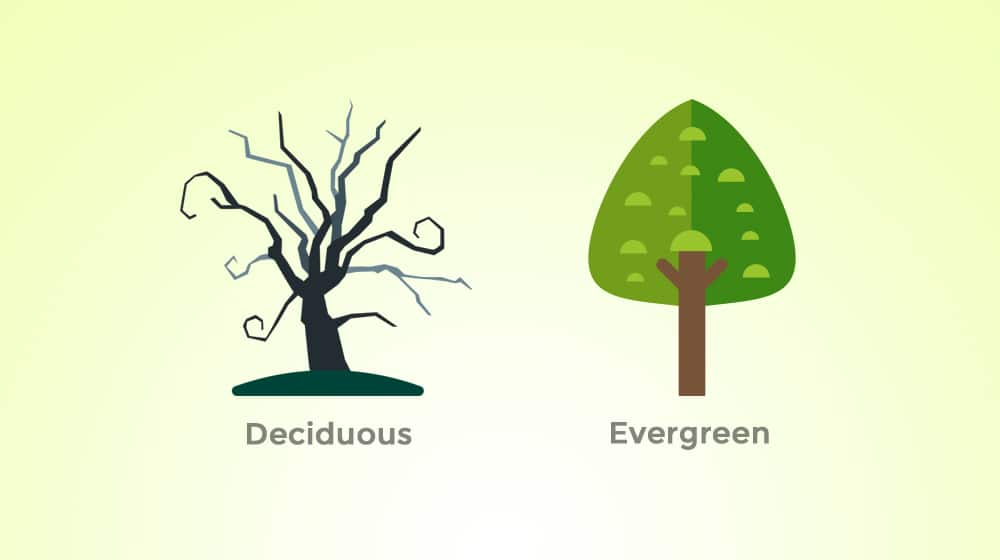
For many bloggers, the go-to strategy is to try to find these evergreen topics and produce as much content in that vein as they can, so their blog is packed full of long-lived, always-valuable content. And sure, sometimes a post doesn't do well, because the topic is too niche or the competition is too fierce, but that doesn't mean it's not valuable. It can always become more valuable as your site accumulates more links, and it becomes more visible.
More quality content generally results in more backlinks, more backlinks means better search rankings, and better search rankings tend to correlate with more traffic and sales. It builds and it builds, and the better your content, the faster it compounds.
Blogging Opens Up Networking Opportunities
Another source of value your blog brings to the table is reputation. It helps you open up opportunities to network with others in your industry, for mutual value and profit.

Here are some things I've seen a blog open up, for myself, for my clients, and for others who blog.
- A comparable brand sees a blog and offers a deal on a guest post where the owner of each blog guest posts on the other. This helps share audiences and grow mutual value.
- A larger brand sees an upcoming brand and asks if they'd be interested in discussing their growth strategy, exposing the smaller brand to the larger brand's audience, and giving them a bit of a reputation in the process.
- An editor for a publishing house sees a well-written blog about their favorite topic and asks the blog owner if they'd be interested in writing a book on the subject.
- A blog owner uses their blog as proof of their thought leadership to establish a writing position on sites like Forbes.
I use this example because it's very similar to value that I've gotten from blogging. I'm published at dozens of blogs that are household names, and it all started with somebody reaching out to me because of one of my blog posts.
There are a ton of different ways you can network and meet people through your blog. Compatriots, competitors, editors, publishers, influencers; they're all out there, reading blog posts. By being one of the people publishing blog posts, you can link up with all sorts of people.
Blogs Are a Customer Communication Channel
Perhaps one of the more important elements of a blog is the community that forms around it. Fans and followers read the blog, and they read it regularly, so long as you're regularly publishing content. If you inject personality into your blog posts, your readers can get a sense of who you are, and they can feel like they know you. This forms a bit of a personal bond. Heck, I've caught myself referring to stores from "a guy I know" when I "know" the person through reading their blog.
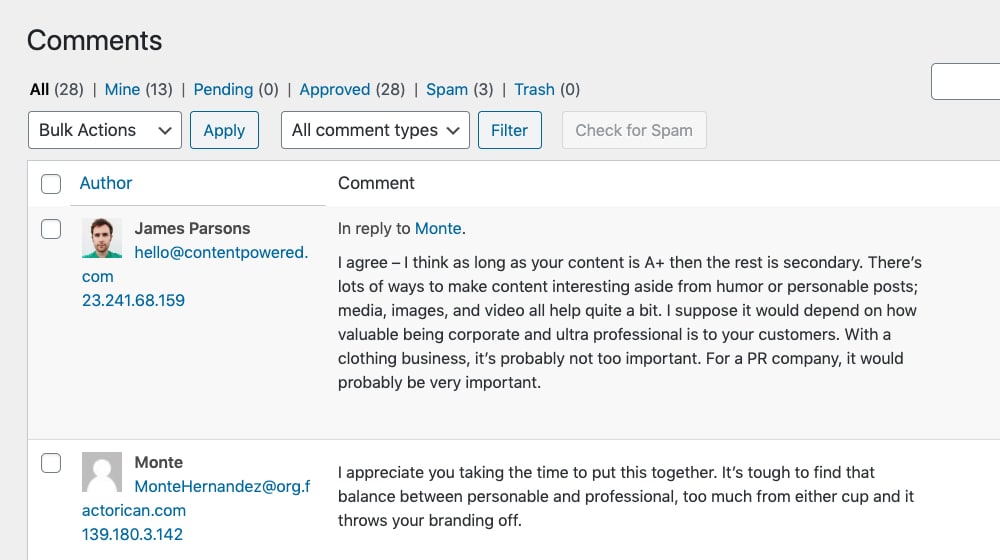
In this way, blogging acts as a two-way communications channel. It's not quite as two-way as something like Facebook or Twitter, where audience interaction is much more expected, but it's still a bidirectional street. You write blog posts and people read those posts. Those people leave comments, and you read those comments. You can respond to comments, and build a community.
In particular, this is very helpful and helps you engage your community. That sense of familiarity the customers build? You can use that. By responding to them – and by recognizing the people who comment frequently as your biggest fans – you can further engage them with your brand, and build their loyalty.
Of course, you have to be aware that some people will try to abuse this. There are always people who, for example, use the threat of no longer being a fan to try to get you to give them something. You can if you want, but it's not always worthwhile.
Blogging Allows Audience Insight
When thinking about blogging as a two-way communications channel, you should recognize that you can get a lot of value out of the audience who reads your blog.
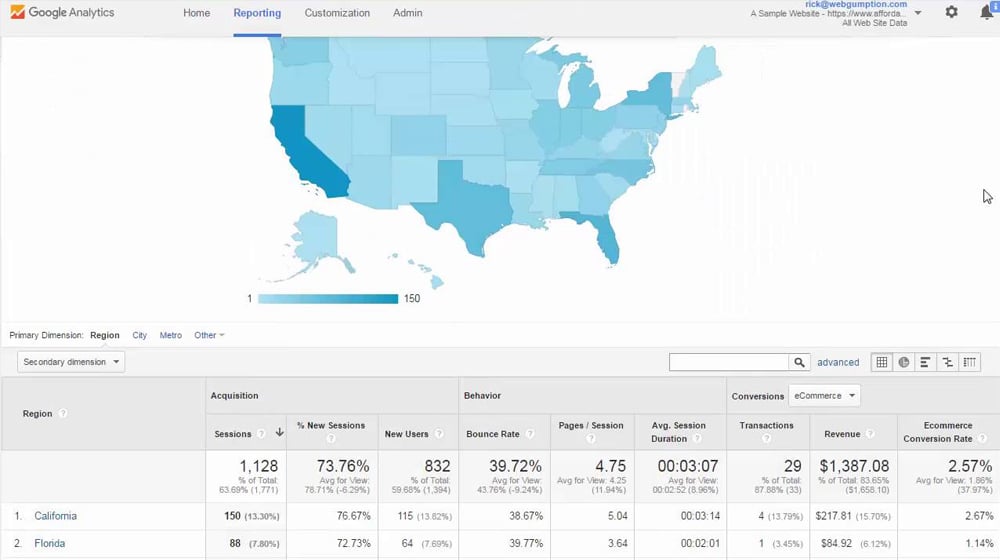
Here are some insights you can gain:
- What are the demographics of the people who read your blog? Where are they from, what are their demographics, what are they most interested in?
- What topics tend to attract more people to your business? Depending on what you're writing about, your blog can attract a certain kind of audience, and that audience may be different from the audience you're targeting with paid ads. It's an opportunity to pivot to a more engaged audience – or a sign that your blogging is focused in the wrong direction and needs adjustment.
- What do your audience members want out of you? Many of your most engaged fans will be more than happy to leave comments and offer suggestions. They can request features for your products or new products to carry, they can leave feedback on pricing and deals, and so on. Their feedback can help you adjust to capture more users, roll out new products, or develop new features.
You can get a lot of information by simply asking for it, and soliciting comments. You can also get a lot from analytics apps you install on your site. The Facebook Pixel allows you to sync up visitors with their Facebook accounts (mostly, not all users link up), and you can use that data for robust analytics on Facebook. Heatmaps and other analytics apps allow you to monitor user behavior and optimize your site to encourage them to do certain things. The more you learn about your visitors, the more you can tweak your site and your store to further encourage them to convert.
Blogging Helps Build a Mailing List
You aren't always going to be able to convert the people who visit your site, on the first, fifth, or tenth visit. In fact, many people will visit your site and then forget about you, only coming back through coincidence.

What you can do is build a mailing list out of these visitors. Use tools like slide-in boxes and exit intent pop-ups, combined with offers like coupons or free content, to convince the user to sign up for your mailing list.
Once they're on your mailing list, you have all the value of mailing lists in the palm of your hand. It's another marketing channel, one not beholden to Google or a social network. You can use it to inform your readers, deliver new content to them directly, and eventually convince them to convert. It builds trust, reputation, awareness, and income, all in one channel.
Blogging Generates Backlinks
Every blog post is an opportunity. Not just for conversions or for organic search ranking, but for backlinks as well. People share blog posts they like on social media. People link to them from other blogs. Links circulate; someone could link to one of your posts who discovered the link from another blog that linked to you.
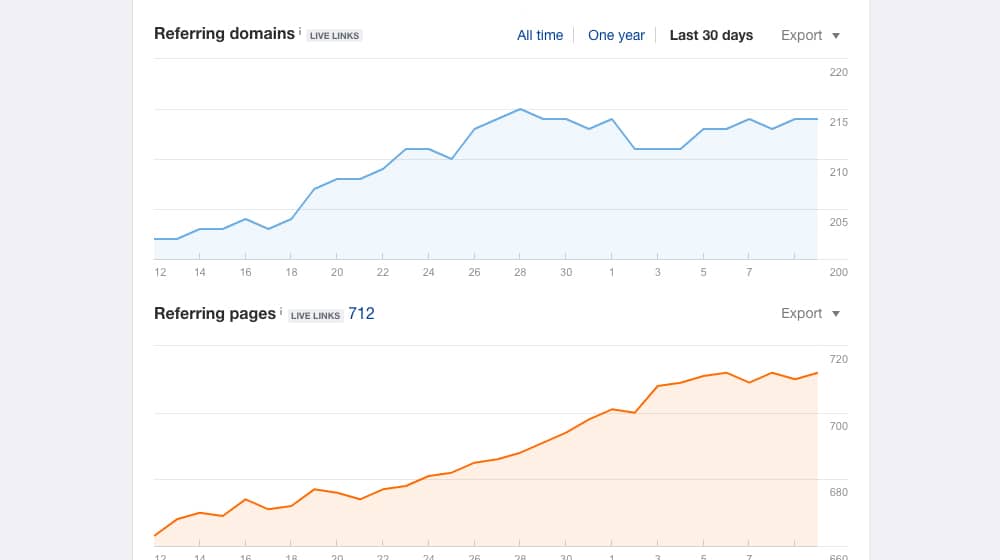
Backlinks are endlessly valuable. They're a core element of SEO, and they make your site rank higher than the competition, than other blogs on the same topic. The more links you have, the bigger your site becomes, and the more easily you can steamroll the competition. And, of course, the larger and more popular your site is, the more people trust you and the more people are willing to convert.
Blogging can bring in a lot of money, you just need to stick with it, endure the costs of setting it up and running it until it becomes profitable, and spend time researching, optimizing, and improving it.
Yes, it's a lot of work, but trust me - when you zoom out and focus on the long term, it's more than worth it.



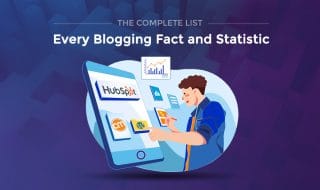

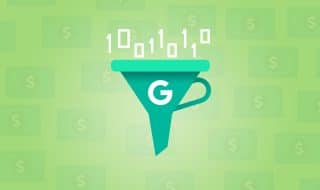




April 15, 2021
Hey James. How long will it take before you can monetize your blog?
April 15, 2021
Hey William!
You can monetize your blog right away. Usually, a new blog won't become profitable for a while, though it depends on your monetization strategy.
If you sell a subscription service or have a high customer lifetime value, it may become profitable in less time.
If you're running ads or an affiliate site, it may take years to become profitable.
August 02, 2021
Hey James. I launched my site a month ago and noticed that it doesn't rank yet. Can I still monetize it?
August 03, 2021
Hi Bryan,
You can start monetizing from day one, but new sites don't usually get much traffic for the first 6-18 months, depending on how often you produce quality content. This delay doesn't apply as much if you're promoting your site and content on other channels (social, video, etc.).
Organic traffic has a slow onset, even when regularly writing great content.